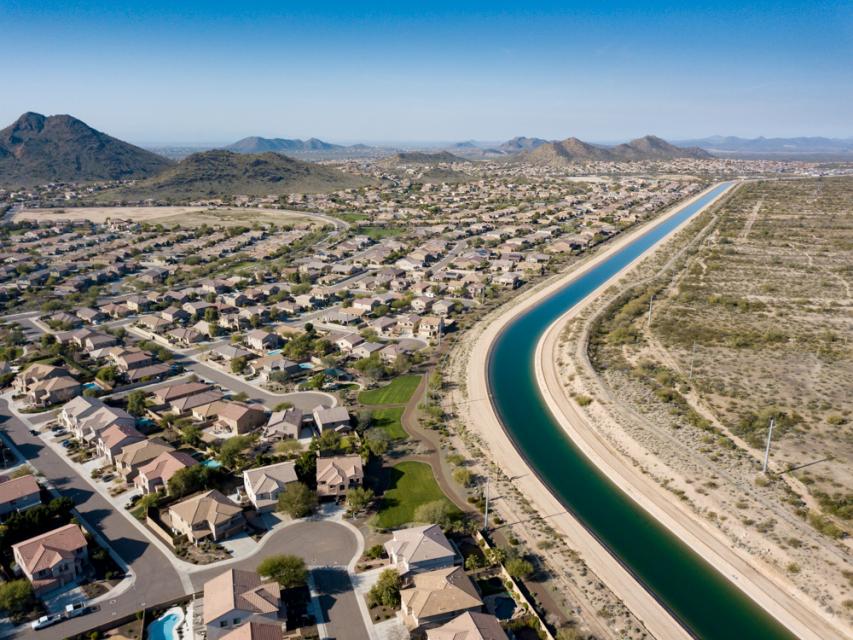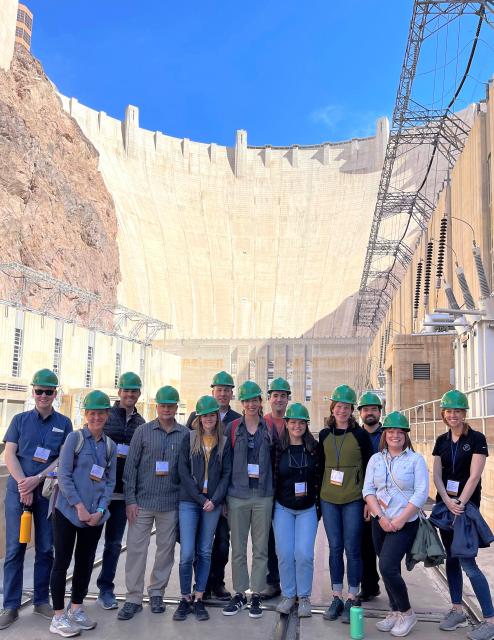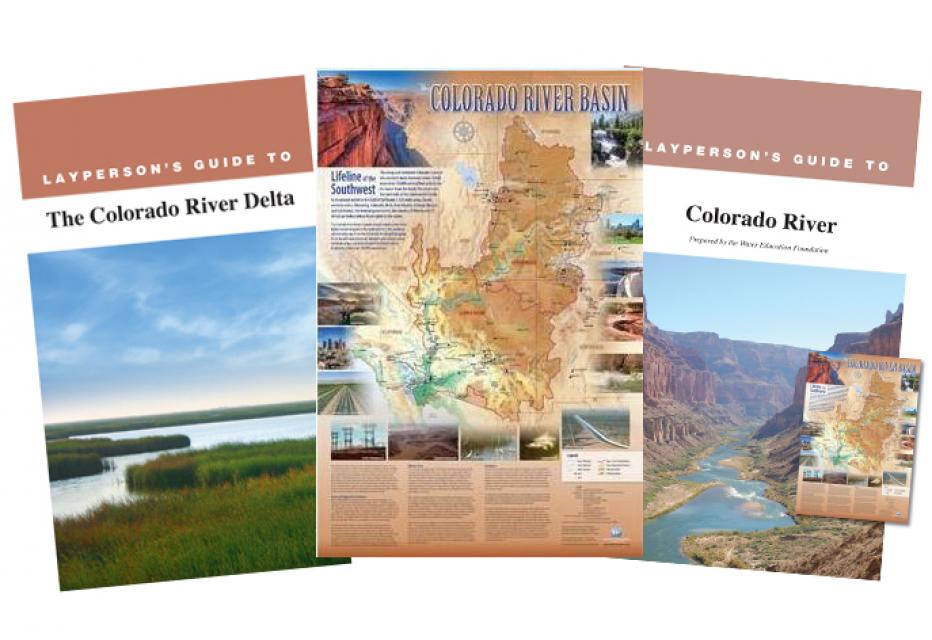Western Water News: Tribes Gain Clout as Colorado River Shrinks – an In-Depth Look
Also: Water Word of the Day and Five Don't-Miss Water Reads from Across the West
Dear Western Water readers:
 The climate-driven shrinking of the
Colorado River is expanding the influence of Native American
tribes over how the river’s flows are divided among cities, farms
and reservations across the Southwest.
The climate-driven shrinking of the
Colorado River is expanding the influence of Native American
tribes over how the river’s flows are divided among cities, farms
and reservations across the Southwest.
The tribes are seeing the value of their largely unused river water entitlements rise as the Colorado dwindles, and they are gaining seats they’ve never had at the water bargaining table as government agencies strive to redress a legacy of exclusion. States that have built a reliance on unused tribal water are paying more attention to tribes, which are poised to use more of their supplies in the near future.
It remains an uphill fight, but tribal nations are starting to gain ownership in the management of the Colorado River and figure to be key players in the development of the river’s future operating rules. Read the full story here.
Water Around the West
Five don’t-miss articles from California and across the West:
Rewilding baby salmon using indigenous knowledge: Earth Island Journal’s Marc Dadigan updates the Winnemem Wintu Tribe’s urgent effort to save California’s winter-run chinook salmon from extinction.
Grand Canyon flood experiment helped restore beaches, delighting Colorado River runners: A rare springtime flood release from Lake Powell churned up sediment and restored sandbars downstream, to the delight of Grand Canyon rafters and campers, writes the Arizona Republic’s Brandon Loomis
Oregon Cascades, Western states losing glaciers, new analysis finds: Entire glaciers are disappearing in the West as the important sources of water for rivers, wildlife and people become more vulnerable to warming temperatures, reports Alex Baumhardt for the Oregon Capital Chronicle.
California regulators tell Sacramento Valley groundwater agencies to fix sustainability plans: The Sacramento Bee’s Ari Plachta outlines why the California Department of Water Resources marked several more groundwater sustainability plans as incomplete.
Phil Isenberg: 1939-2023: Veteran California political reporter Dan Morain reflects on the life of Phil Isenberg, an influential former California assemblyman who worked to protect the Sacramento-San Joaquin Delta and negotiated a deal to preserve Mono Lake.
Water Word of the Day
The Colorado River Compact was a historic feat of cooperation that split up the iconic river among the seven Upper and Lower Basin states. It was the first time in U.S. history that more than three states negotiated an agreement among themselves to apportion the waters of a stream or river. The Compact is the cornerstone of the laws, court decisions and settlements that collectively are known as the Law of the River. Learn more about the Colorado River Compact and other water-related issues in Aquapedia, our water encyclopedia.
At the Foundation
 The application window is now open
for our second cohort of Colorado
River Water Leaders, which will run from March to
September next year.
The application window is now open
for our second cohort of Colorado
River Water Leaders, which will run from March to
September next year.
Our biennial program, patterned after our highly successful California Water Leaders program, selects rising stars from the seven U.S. states that rely on the river - California, Nevada, Arizona, Colorado, Wyoming, Utah and New Mexico. Acceptance to the program is extremely competitive. Sign up for our virtual Q&A session on Dec. 7 if you are interested in applying or sponsoring a candidate from your organization. Applications are due Jan. 22.
Water Academy
 More than 40 million people, seven
states, more than two dozen Native American tribes and the
country of Mexico depend on the Colorado River for their water
supplies. Refresh your knowledge of the 1,450-mile-long river,
also known as the “Lifeline of the Southwest”, with our Colorado
River Basin Map and Layperson’s Guide to the Colorado River. This
Colorado
River Bundle highlights tributaries and dams, covers
the history of the river’s development and outlines the Law of
the River.
More than 40 million people, seven
states, more than two dozen Native American tribes and the
country of Mexico depend on the Colorado River for their water
supplies. Refresh your knowledge of the 1,450-mile-long river,
also known as the “Lifeline of the Southwest”, with our Colorado
River Basin Map and Layperson’s Guide to the Colorado River. This
Colorado
River Bundle highlights tributaries and dams, covers
the history of the river’s development and outlines the Law of
the River.








